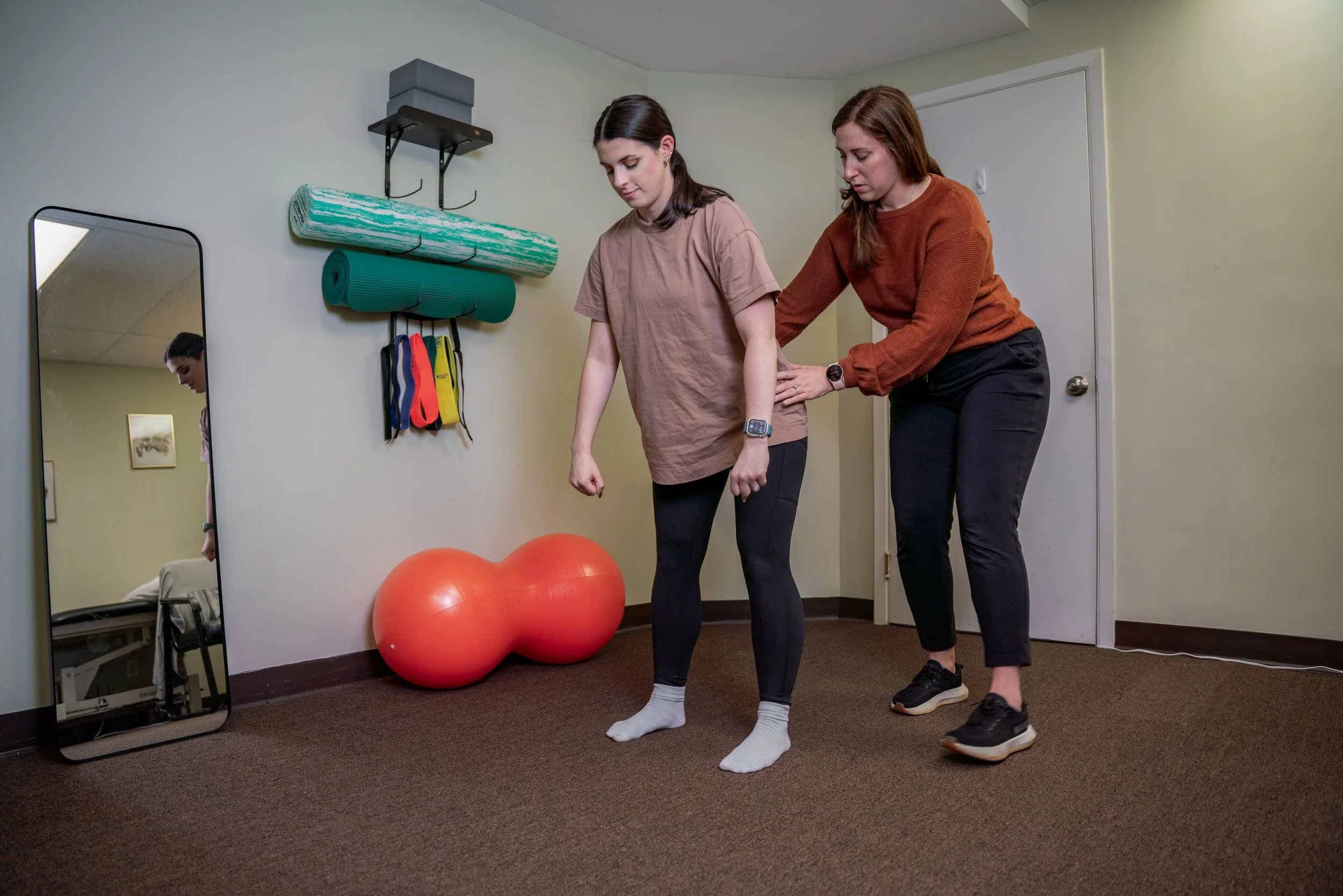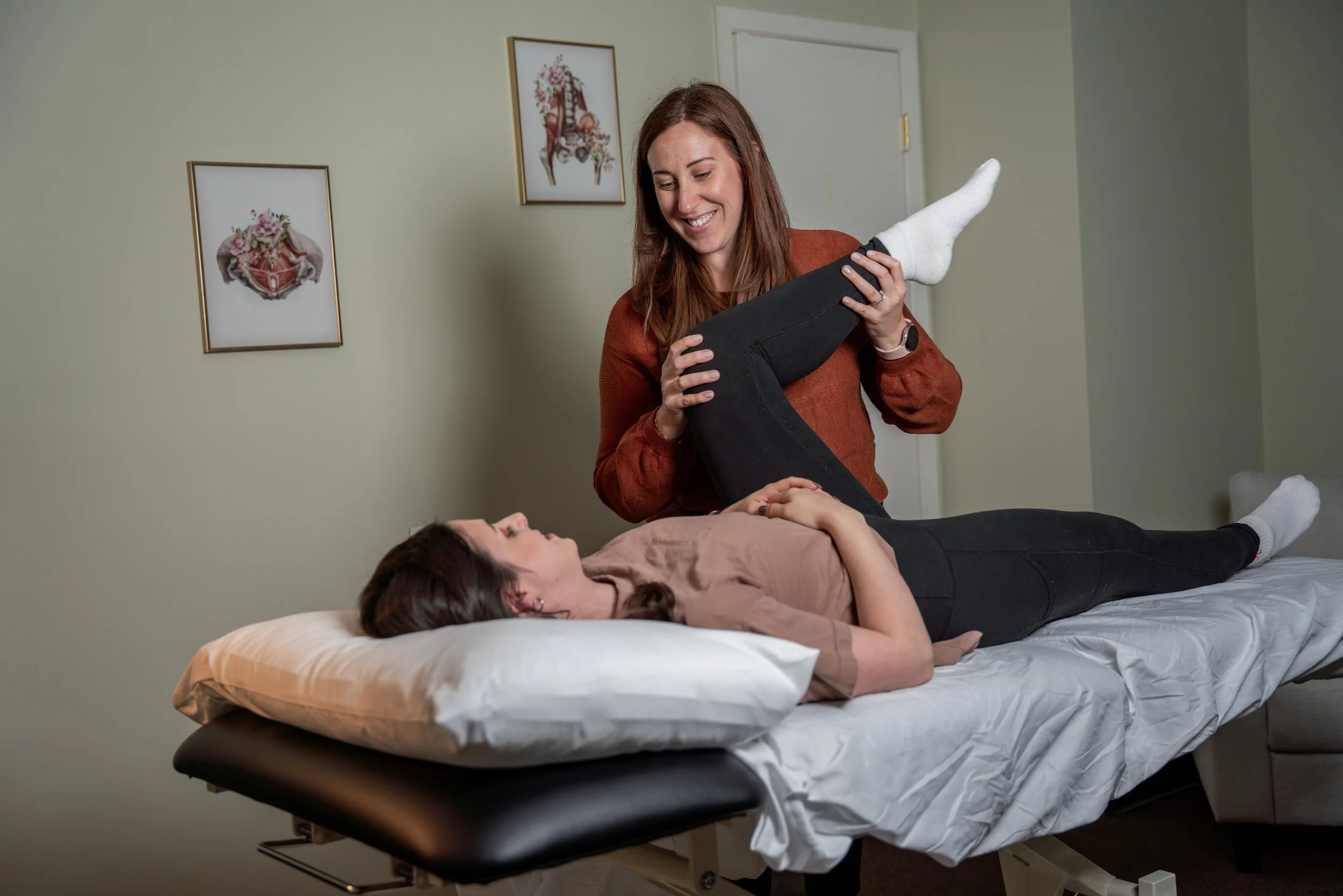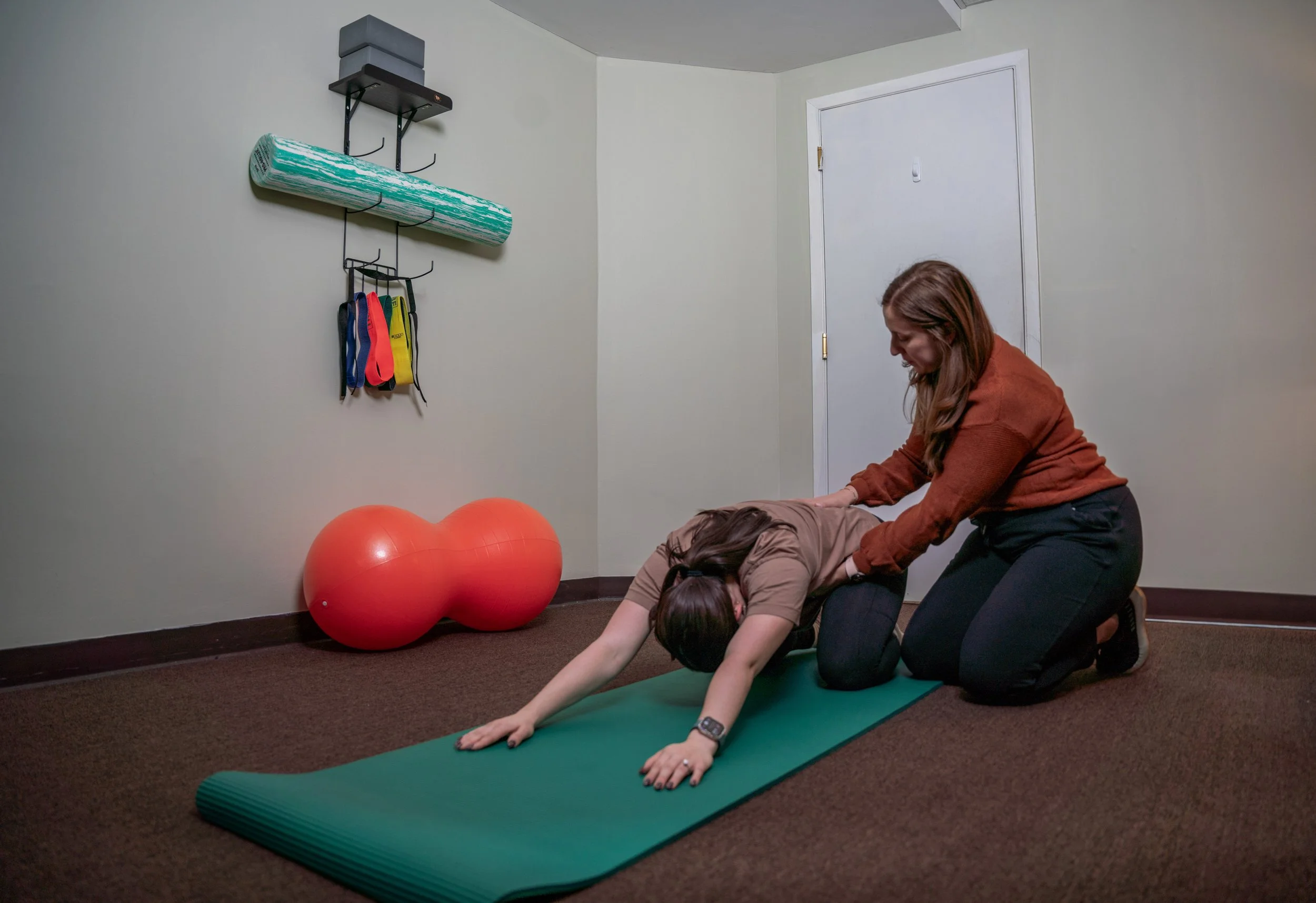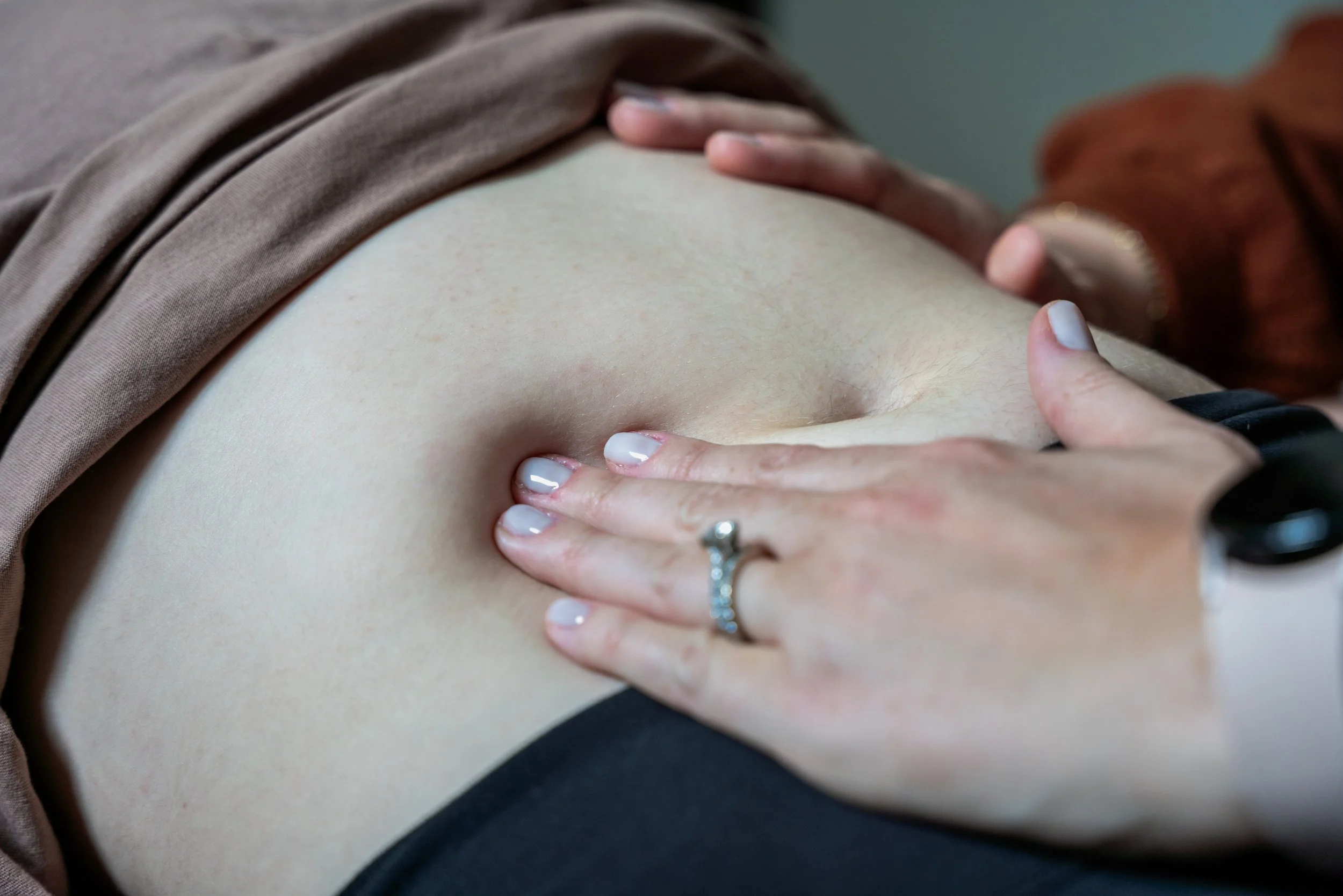Pelvic Floor Services
LABOR & DELIVERY PREP
For some, pregnancy is the “easy” part - and thoughts about delivery your baby can be worrisome. I can help prepare your body for childbirth with the overall goal of reducing pelvic trauma and pain that has the potential to occur during delivery. We review optimal birthing positions, proper pushing technique and the potential trajectories of childbirth. I can perform perineal massage, provide supportive breathing and exercise strategies and prioritize core and pelvic floor muscle support to assist you in your optimal birth plan.
PREGNANCY
Pregnancy is beautiful, but it can also come with unexpected challenges as the body changes to accommodate for the growing uterus. We will work together to understand those changes and potential symptoms that can come along with pregnancy. You will be educated on safe and supportive exercises, adjustments of posture and position and management of pain. Whether it is back pain, hip pain, urinary urgency or leakage, or pelvic pressure , I can help!
POSTPARTUM RECOVERY
Many believe the postpartum period ends after the first few months post-birth - however, it is truly the start of a new you that may come with symptoms you have never felt before. Whether you are in pain or just want to ensure optimal healing after birth, I am here for you! We will address diastasis recti, abdominal muscle weakness, pain with sex, scar tissue mobilization following birth, positional strategies for feeding, return to activity, and a variety of potential pelvic floor symptoms including but not limited to urinary incontinence, fecal dysfunction, and pelvic pain or pressure.
INCONTINENCE
We all may have heard of this term before - and also may be fearful or embarrassed by it. I am here to provide answers to why either urinary or fecal incontinence is happening and how to make a plan to retrain your bladder and bowels. If you are having difficulty peeing, going to the bathroom to often or not enough, frequently getting up at night to pee, experiencing intense urgency to pee or poop, or leaking beyond your control, we will assess your pelvic floor and pressure system to eliminate these symptoms and allow you to function without the fear of leaking.
PELVIC ORGAN PROLAPSE
The ligamentous support of the pelvic floor is sound, but interruptions in its integrity can result in a bladder, rectal or uterine prolapse causing challenging symptoms of pelvic pressure and heaviness. We will work on pressure management techniques, effects of position and posture on the pelvis and options in management of prolapse. Whether we are working to prevent the progression of the prolapse, prevent surgery or assist in your recovery from prolapse surgery, there is a way to help you.
VULVAR PAIN
Treatment for conditions such as vulvodynia and vestibulodynia will focus on reducing irritation and pain within the vulvar and vestibular through desensitization, nervous system calming strategies and pelvic floor muscle relaxation. Gentle care and attention will be given to improve comfort, intimacy and quality of life.
A condition called vaginismus can cause involuntary pelvic floor muscle tension that creates severe discomfort with sexual activity, gynecological exams and use of tampons. Pain management includes guided breathing, graded exposure to improve sensitization and individualized home programs to restore pain-free movement of the pelvic floor muscles.
PELVIC PAIN
I use a variety of techniques including myofascial release and visceral mobilization to target muscular tension patterns and nervous system upregulation that can be related to your symptoms. Together, we will work on pain in the vagina and vulvar region, penis and scrotal region, abdomen, diaphragm, tailbone and hips, low back and pelvis.
Severe pelvic pain can be associated with diagnoses such as endometriosis, adenomyosis and polycystic ovarian syndrome (PCOS) and pain can be referred to all the areas mentioned above. If you have been diagnosed with one of these conditions, I can help!
MALE PELVIC HEALTH
Men have a pelvis too, and many of the same conditions such as urinary or fecal incontinence, bladder pain syndrome or constipation can occur. Additionally, men can present with symptoms of erectile dysfunction, prostatitis or testicular/penile pain that deserve the same individualized care. I can help with pre and post-prostatectomy care to allow for recovery and healing no matter the cause.
DYSPAREUNIA
Sexual activity is a major function of the pelvic floor and can be impacted by a number of pelvic floor conditions. This can be caused by pelvic floor muscle tension, scar tissue formation, hormonal changes or increased sensitivity of the surrounding areas. I will work with you to determine the contributing factors to your pain with intimacy, find ease within the body through nervous system relaxation techniques and restore comfort to support lasting improvements to your pelvic health and strengthen your relationship.
BOWEL DYSFUNCTION
It is important to remember that the pelvic floor functions for bowel function, just as much as it functions for urination.
If you have a history of constipation, experience pain with pooping, or find yourself straining to have a successful bowel movement, I can help. These habits can lead to the development of unwanted hemorrhoids, fissures or anorectal pain. I will show you exercises to improve the mobility of your pelvic floor, teach optimal positioning and strategies for effective pooping and provide guidelines on diet and lifestyle modifications to ease your worries about your bowels!
SURGERY RECOVERY
Following pelvic surgery - whether it be a hysterectomy, C-section, endometriosis excision, prostatectomy or hernia repair - my approach to rehabilitation includes targeting scar tissue adhesions, proper strengthening and mobility and restoring your confidence and health in the process. Though most would prefer to avoid surgery, it is sometimes inevitable and the most appropriate option for your symptoms. We will work through this together and make sure you understand the procedure and recovery details.
LUMBOPELVIC PAIN
Research has shown that many people with low back pain will also have pelvic floor dysfunction suggesting the strong link between the two. Therefore, it is important to address signs and symptoms of lumbar spine pain, hip pain and sacroiliac joint dysfunction to improve the overall function of the pelvic floor. I will often include focus on these areas within pelvic floor treatment to maintain a full-body approach and address all contributing factors to your symptoms.




